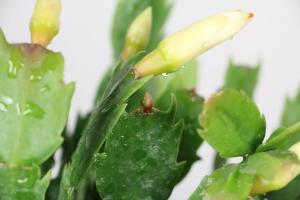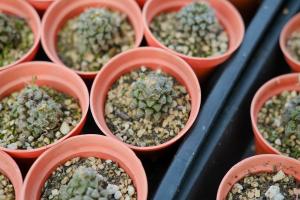Introduction
Tomatoes are an essential part of many diets worldwide, and they are useful in numerous dishes. When it comes to growing tomato plants, one might wonder about the pollination process. Pollination is a vital aspect of plant growth, and it is essential to consider whether your tomato plants need to be pollinated or not. Let's discuss this further in this article.
What is Pollination?
Pollination is the process by which pollen grains are transferred from the male part of the flower (anther) to the female part (stigma). This process is essential for fertilization to occur, which leads to the development of fruits and seeds in plants. In tomatoes, pollination typically occurs naturally by wind, although certain factors could prevent this from happening. The question remains, do you still need to pollinate tomato plants?
Do Tomatoes Need to be Pollinated?
The answer is yes, tomatoes do need to be pollinated to produce fruits. Tomatoes rely on insects, wind, or other natural factors for pollination. However, some cases might make the natural process challenging. For instance, if you are growing tomatoes indoors, where there is no wind or insect activity, or if your garden is in an urban area with minimal insect activity, you might consider pollinating your plants manually.
How to Pollinate Tomato Plants?
There are various ways of pollinating tomato plants manually. One of the best methods to achieve this is by using a paintbrush or a cotton swab to transfer pollen from the anther to the stigma. You can also use your fingers to do this, gently rubbing the anther and then the stigma. Another practical method is to gently shake the flower, simulating the wind's effect, which could transfer the pollen naturally.
When Should You Pollinate Tomato Plants?
It is essential to know when to pollinate your tomato plants. You should do it during the flowers' blooming period(around two to three weeks after planting), when they start producing flowers. It is best to pollinate tomato plants in the morning when their flowers are still fresh and moist, making it easier for the pollen to be transferred. You can also repeat the process every two to three days to ensure a good pollination rate and maximize fruit production.
Conclusion
So, do you need to pollinate tomato plants? Yes, tomatoes require pollination to produce fruits, and manual pollination might be necessary if natural factors are not present. It is essential to know when and how to pollinate your tomato plants to increase your yield and have an abundant harvest. Keep in mind that this process is not complicated and can be accomplished quickly and efficiently by following the methods we have outlined in this article.

 how many times do yo...
how many times do yo... how many planted tre...
how many planted tre... how many pine trees ...
how many pine trees ... how many pecan trees...
how many pecan trees... how many plants comp...
how many plants comp... how many plants can ...
how many plants can ... how many plants and ...
how many plants and ... how many pepper plan...
how many pepper plan...






























